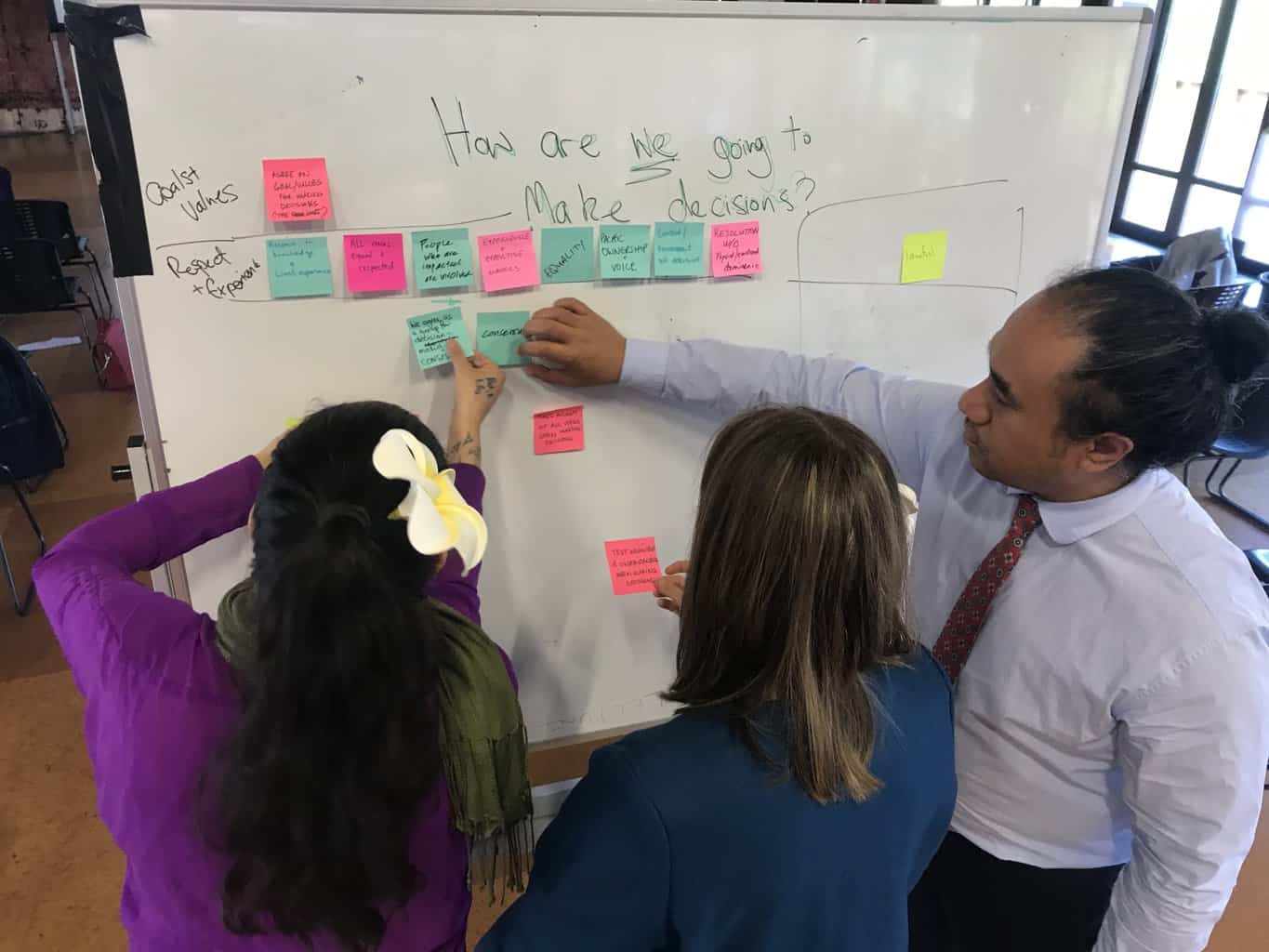‘Pacific Specific’: a new module for the 2020 human rights survey
Aroha mai, aroha atu: a key theme that emerged in conversations at the recent Pacific Region Co-Design Workshop was that if HRMI wanted to expand its human rights data collection work throughout the Pacific, there will need to be a reciprocal relationship, where HRMI are givers as well as receivers.
Our annual human rights survey is translated into many languages, and goes out around the world in February and March each year. In 2019, human rights practitioners in 19 countries gave an hour or so of their time to share their knowledge with us, so we could produce scores measuring their countries’ human rights performance.
In order to produce scores that can be compared across very different countries – from Venezuela to Vietnam, and from Fiji to Mozambique – each person answers exactly the same questions.
But as we talked with 45 human rights practitioners from around the Pacific about the work and goodwill required to make this possible in 21 new countries and territories, it became clear that the biggest human rights concerns of many in the room were not adequately reflected in the draft survey we asked their advice on.
We listened, and two new initiatives have come from the important conversations of that week and beyond.
‘Pacific Specific’: a new module for the 2020 human rights survey
So here’s what we’re doing: in 2020, survey respondents from Pacific countries and territories will first be asked a series of ‘Pacific Specific’ questions, on four areas of concern that have been chosen by Pacific people:
- how the climate crisis affects human rights
- cultural rights
- indigenous self-determination
- indigenous land rights
- violence against women and girls; people with disabilities; LGBTQIA+ people; children
This is just the first version, created in just a couple of short months, in consultation with people from Pacific human rights communities, and put through two rounds of user-testing. Over the coming year we hope to find a human rights researcher from the Pacific who would like to help develop and refine it further so that we can offer more in the following years.
The response from our user-testing has been encouraging – it’s clear there is a real thirst for better data on these issues, and we are glad to be able to help provide some.
This may also be a model for how other regions can benefit even more from HRMI’s work – perhaps a ‘Latin America Specific’ module could be added sometime in the future, and so on.
Indigenous Rights in the Pacific and beyond
The second major initiative to come out of the workshop is the early beginnings of a new HRMI workstream on indigenous rights.
James Hudson will lead work to measure how well countries are meeting their obligations under the United Nations Declaration on the Rights of Indigenous Persons (UNDRIP). We are in the early planning stages, and welcome any input or interest in joining the team working on this.
If you are a human rights worker, lawyer, or journalist in a Pacific country or territory, please consider participating in our annual survey in February-March. Contact us to join.


